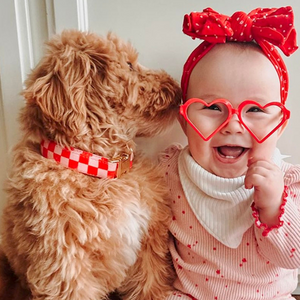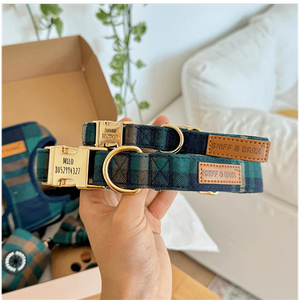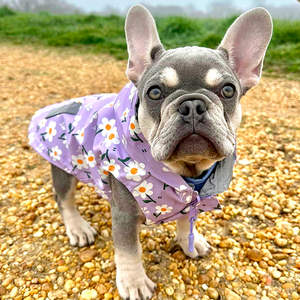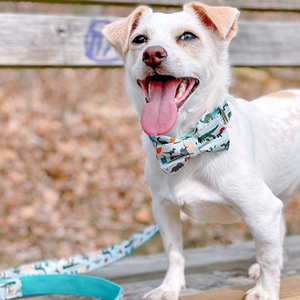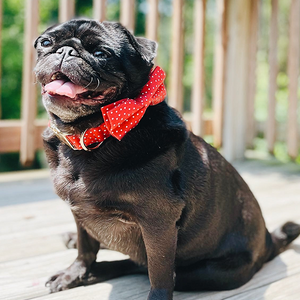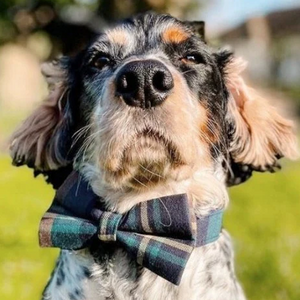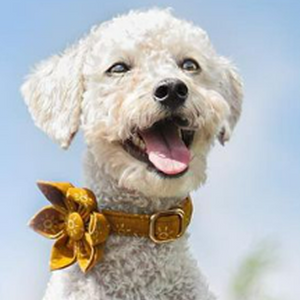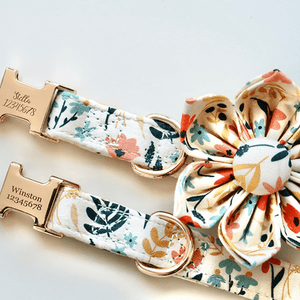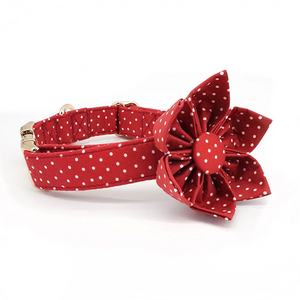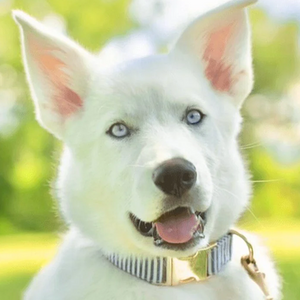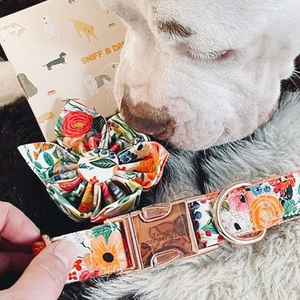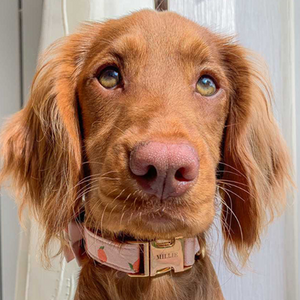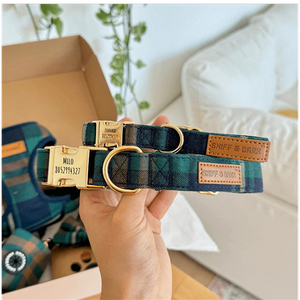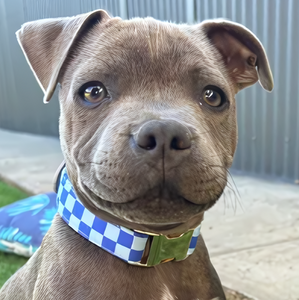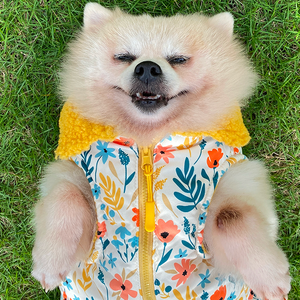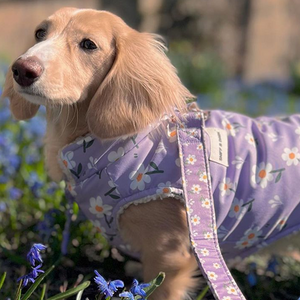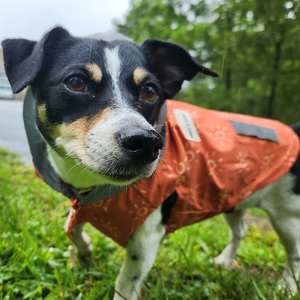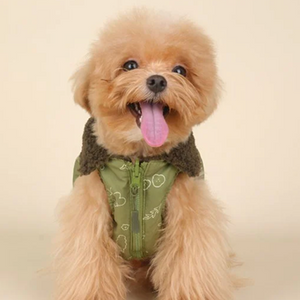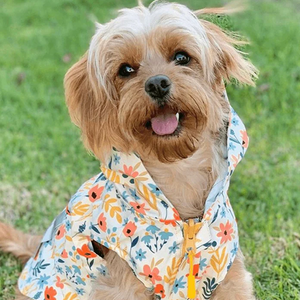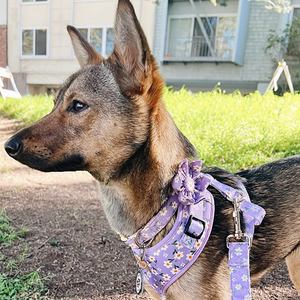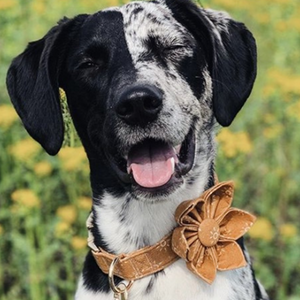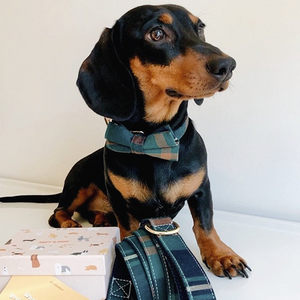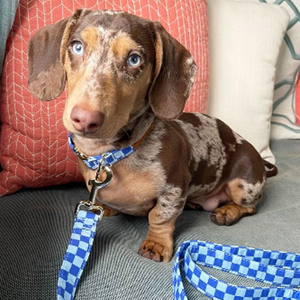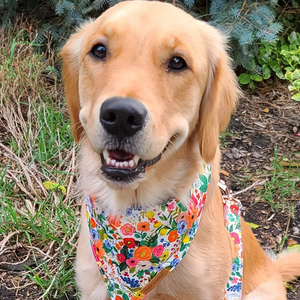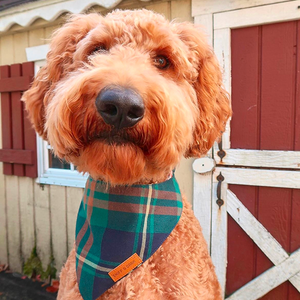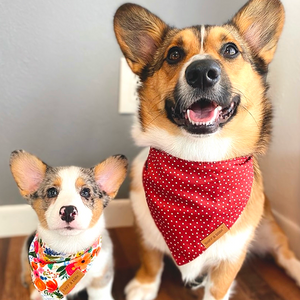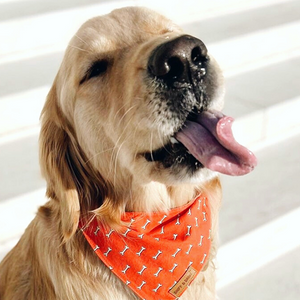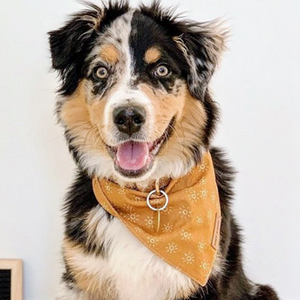Have a stress-free and happy holiday with your dog by learning which food items are safe to eat, which holiday items pose risks, and winter care tips for dogs!
11/03/2022 | Sniff & Bark
The holidays are just around the corner. Christmas decorations are up, the weather is getting colder, everyone is feeling festive, and if you’re lucky, you may even have a few days off from work! What’s not to love? How can you help but get excited?
While there’s certainly a lot to look forward to, it’s also a good time to be extra careful when it comes to our four-legged friends. Holidays like Christmas and Thanksgiving pose certain risks for them, most notably the danger of swallowing food and non-food items that are related to the holidays. Several authorities have mentioned that significantly more dogs need emergency medical care around the holiday season. Vets Now pointed out that they receive 40% more emergency calls during this time.
We want you to have stress-free and happy holidays with your dog which is why we’re providing you with a list of items that are safe and unsafe for dogs to eat and dog care tips for winter.
Holiday Food Guide for Canines
One of the best things about the end of the year is the generous and delicious holiday spread. Stuffed turkey, mashed potatoes, cranberry sauce, and gravy — just the thought is enough to make our mouths water!
As their delectable scents waft into the air, our lovable pets turn to us with those puppy-dog eyes, melting our hearts with their wordless yet unmistakable pleas for food. Before you give in, check out the following lists to save yourself a possible trip to the vet.
Which Popular Holiday Food Items Are Safe for Dogs?
Sometimes, our furry family members don’t know what’s best for them, especially when it comes to food. Test your holiday food smarts by seeing if you can guess correctly which items are safe and unsafe for dogs.
Can Dogs Have Turkey?
Is turkey bad for dogs? Turkey is a common ingredient in dog food so roast turkey from your Thanksgiving table should be fine for your pet. Just make sure it’s properly cooked and doesn’t have too much salt. You can even give it unseasoned and skinless ground turkey meat for an extra healthy treat.
Can Dogs Eat Ham?
Can dogs have ham? Dogs shouldn’t have ham. Ham contains lots of sugar as well as sodium-based nitrites and nitrates which are bad for them. Too much salt can cause diarrhea, vomiting, lethargy, excessive urination, and thirst.
Can Dogs Eat Pumpkin Pie?
Cooked pumpkin is actually good for dogs but because pumpkin pies are loaded with sugar and contain spices like nutmeg and allspice, they’re unsafe for dogs to eat. If it’s topped with whipped cream, it becomes even unhealthier because whipped cream is full of fat. These additives can give your pet seizures, high blood pressure, and cause disorientation.
Can Dogs Have Marshmallows?
If you’re wondering, “can dogs eat marshmallows?” the answer is no. Marshmallows are unhealthy for dogs because they’re made with ingredients like corn syrup, sugar, vanilla, gelatin, and confectioners’ sugar. If they have xylitol, a type of artificial sugar, the risk becomes even greater because it is toxic for dogs even if they have just a little of it.
Can Dogs Have Cranberries?
Can dogs eat cranberries? Whether fresh or dried, cranberries are safe for dogs to eat as long it’s in small quantities. If you feed them too many cranberries, it can cause an upset stomach.
If you’re giving your pet cranberry sauce, be careful as it may have raisins which are toxic for canines. Cranberry sauce can also have large amounts of sugar which are unhealthy for them.
Can Dogs Eat Brussel Sprouts?
Absolutely, but only in small amounts. Brussels sprouts are good for dogs because they’re packed with fiber and vitamins while being low in calories and fat. However, large amounts of Brussels sprouts can give your pet gas and diarrhea due to their isothiocyanate content which negatively affects dogs’ digestive tracts.
Can Dogs Eat Pecans?
Do not feed your dog pecans. They contain juglone, an organic compound that can lead to digestive issues and vomiting. If you happen to give your dog a moldy pecan, it can result in tremors and seizures.
Can Dogs Eat Persimmons?
Yes, but only if you remove the seeds. The flesh of the persimmon fruit is packed with vitamins A and C but the seeds and pit can block your canine’s intestines and cause a variety of digestive problems like diarrhea. Generally, a few slices or a small handful of persimmons without seeds and pits are safe enough.
Can Dogs Eat Pomegranates?
Pomegranates are another fruit that’s good for us but potentially harmful for dogs. Again, it’s the seeds that are the culprit. If your furry friend consumes the peel or any of the seeds, it can cause stomach pain, vomiting, diarrhea, and other digestive problems.
This red fruit contains tannins which react to dogs’ digestive systems. Dogs can also choke if they eat too many of the seeds too quickly.
Can Dogs Eat Oranges?
The answer to, “can dogs have oranges?” is yes. Oranges are great for dogs because of their nutrients and vitamins. They’re full of vitamin C, fiber, and potassium yet low in sodium. However, they do have a fair amount of sugar so give them to your dog in moderation. One or two slices a day is generally considered a safe amount. If they ingest too much, it can upset dogs’ gastrointestinal systems.
Keep orange peels away from your pet as they can block the intestines.
Can Dogs Eat Fruitcake?
Fruitcake has raisins and may contain xylitol which is toxic for them. Xylitol can be fatal for dogs while raisins can cause vomiting and diarrhea six to 12 hours after being ingested.
It also has sugar which can cause obesity in dogs.
Can Dogs Eat Stuffing?
Though delicious for us humans, turkey stuffing is packed with sodium and fat which are unhealthy for dogs’ diets. It also has toxic ingredients like onions and garlic, making it an unsafe food option for our furry friends.
Can Dogs Eat Mashed Potatoes and Gravy?
Potatoes are safe for dogs to eat but added ingredients like salt and butter can make them unhealthy. The root crop also doesn’t have much nutritional value.
Gravy may contain garlic and onions which are toxic for canines so it’s best to keep this savory sauce away from them.
Dog-friendly Food That’s Safe for Sharing
It seems like most of our favorite holiday food items are unhealthy for our beloved doggos but don’t despair — there are still a fair amount of options that won’t harm their health!
In addition to the dog-friendly items we mentioned above, you can also safely share:
- Green beans
- Sweet potatoes
- Apples without the core and seeds
- Spinach
- Carrots
- Winter squash
- Corn kernels without the cob
- Berries
- Bananas
- Melons
You can also give the following in moderation:
- Cooked eggs
- Xylitol-free peanut butter
- Salmon
- Low-fat cheese
- Plain yogurt
Non-Food Items That Are Dangerous for Dogs
Sparkling and eye-catching seasonal decorations aren’t just delightful for people. They also often catch our dogs’ attention. Beautiful baubles and dancing lights look like attractive new toys to them. They’re irresistible invitations to be caught and played with.
As lovely and festive as they are, we need to be aware of the risks they bring as part of winter dog care.
Here are non-food items that are potentially dangerous for dogs:
Christmas Trees
Ingestion of pine needles can upset their digestive systems and cause bruises to the mouth. At their worst, they can puncture the intestines. Avoid these risks by getting rid of pine needles daily. Reduce the pine needles that fall by watering your Christmas tree or opt for an artificial one.
Poinsettias
Are poinsettias poisonous to dogs? These trademark Christmas flowers are mildly toxic to canines. If they’re eaten in large amounts, they can cause vomiting, diarrhea, and drooling so it’s best to keep poinsettia and dogs apart. The same goes for ivy and mistletoe.
Wrapping Paper
Wrapping paper isn’t highly toxic to our four-legged family members but if they happen to ingest a big ball of it, it can create an obstruction in their stomachs. Tidy up wrapping paper that’s lying around and make sure your dog doesn’t have access to it.
String Lights
Colorful and shiny Christmas lights are irresistible to some pets but if they bite into them, the glass can hurt their mouths while risking electric shock. Keep Christmas lights safely out of reach. If there are loose wires on the floor, tuck them away or tape them securely to the ground.
Glass baubles can also cause intestinal blockage, perforation, and irritation.
Tinsel
When eaten, tinsel can also cause blockages. If they find their way to dogs’ intestines, they can require immediate medical attention and emergency surgery. Since many dogs are naturally attracted to tinsel, consider doing away with tinsel this year. Opt for more pet-friendly decorations like durable baubles that are too large to ingest.
Potpourri
Curious pets are likely to rifle through potpourri but this can be dangerous to them. Potpourri has cationic detergents and essential oils that can harm your dog’s skin, eyes, and mouth upon contact. It can also be toxic if ingested.
We all want a stress-free holiday that doesn’t require an emergency trip to the vet. However, if your dog somehow manages to ingest something it shouldn’t have, don’t hesitate to get it immediate veterinary care. Toxicity, blockages, and other digestive issues are better managed the earlier they’re addressed. If you aren’t sure if certain circumstances merit an emergency, it’s always better to err on the side of caution and make the trip.
How To Take Care of Your Dog in Winter
The measures we take to care for our dog during winter are different from the things we have to do during other times of the year. As it gets colder and we spend more time indoors, we have to adapt and do some things a little differently.
Here are some ways on how to care for your dog in winter:
Encourage Your Pet to Remain Active
Yes, we know — it’s all too tempting to remain bundled up inside with a hot drink but pets need the same amount of exercise during winter. If it’s too cold outside, try to engage your dog in playtime activities and give it toys to play with. Even if it doesn’t get the same amount of physical activity, the mental stimulation will reduce its restlessness.
However, if you can manage a walk outside —
Keep Your Dog Warm
Consider layering on a dog sweater or a dog coat to give your dog some additional protection from the cold. This is especially important if you own dogs that get cold easily like boxers, dalmatians, fox terriers, and small dog breeds.
Clean Their Paws After Walks
When it comes to dog foot care, winter walks become a bit trickier. During the cold season, rock salt on the ground can find its way between your dogs’ paws. After going outside, dog winter care must include cleaning and drying its paws.
In addition to salt, grit and ice can also cause injuries and sensitive paws. If salt crystals are sharp enough, they can create an open wound in the paw.
It may be a good idea to get dog booties to protect their feet. Of course, quality leashes, harnesses, and dog collars are always a good idea regardless of the season.
Keep Them Away From Heat Sources
Your dog may cuddle up to radiators and wood stoves in search of warmth but it’s best to block off these areas. Our pets aren’t aware that these appliances can get excruciatingly hot and give them burns. Make them inaccessible to keep them from hurting themselves.
Adjust Their Diet
If your dog is less active in winter, adjust its diet to keep it from gaining weight. You can explore making their portion sizes smaller and/or consider shifting them to a leaner low-fat food option.
Bathe Them Less Often
If you bathe your dog once a week, try bathing it every other week. As the weather gets colder, the air gets dryer and frequent baths can cause dogs’ skin to dry out more than usual. If you have a dog that needs to be bathed often, think about switching to a moisturizing shampoo for dogs even if it’s just during winter.
Happy Holidays From Our Furry Family To Yours
Knowing what dogs can safely eat and how to care for them during the holiday season will help ensure stress-free and happy holidays for you and your furry loved ones. By following a few practical guidelines, you’re well on your way to the best end-of-year celebrations.
Happy holidays from your Sniff & Bark family!










